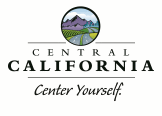
california central valley edc
888-998-2345
661-366-0756
Email: look@centralcalifornia.org
Google set to lease Castle site for self-driving car program
Posted 1/24/2014 by Victor A. Patton and Ramona GiwargisGoogle set to lease Castle site for self-driving car program
By Victor A. Patton and Ramona Giwargis
Merced Sun Star
January 24, 2014
Technology giant Google has entered a lease agreement with Merced County to use 60 acres of land at Castle Commerce Center to help develop the company’s self-driving car technology, the Sun-Star has learned.
Google officials confirmed the lease agreement Friday morning after speculation about who was going to be using the property at Castle. In late December, the Board of Supervisors approved the lease agreement with Google.
It wasn’t immediately clear until Friday that Google was behind the project because the company is listed in the lease agreement document under the name LRC Engineering LLC.
Katelin Jabbari, Google spokeswoman, confirmed her company will be using the Castle site. “It’s a nice space, and we’re happy to be there,” Jabbari said.
Regarding Google’s self-driving car technology, Jabbari also wrote in an email: “We’ve successfully driven in self-driving mode across a wide variety of terrain and road conditions — including a loop around Lake Tahoe and through the Santa Cruz Mountains — and we’re very pleased with the technology’s performance.”
“We’re continuing to develop and refine the technology in a variety of environments, including closed tracks where we can set up challenging courses and obstacles — and the space available to us at Castle is very helpful for that,” Jabbari added.
Mark Hendrickson, director of community and economic development, said the site, referred to as Building 175, includes the old flight simulator facility from the property’s days as Castle Air Force Base.
Google will lease the space for two years for $456,000, according to county documents. The lease payments are about $19,000 a month, beginning in May 2014.
Many details about the project are still preliminary, and it still remains to be seen how many new jobs the project will mean in the immediate future for Merced County residents. Jabbari said she could not comment on how many jobs could be added.
Hendrickson said Google will bring about 10 to 15 people to work at the site. He said the long-term implications for the agreement are very positive, particularly with the contractors, engineers and ancillary spin-off projects associated with the endeavor.
Hendrickson said the deal represents one of the most important moments in the county’s recent development history. “With Google, they represent the future, and we are so pleased to have a good relationship with them, and so pleased they chose Castle and Merced County to launch this venture,” Hendrickson said.
He said talks between county officials and Google began about six months ago.
Crews are currently preparing the site, enveloping it with fencing and getting the building ready for use. The company plans site improvements to build a low-speed closed course for vehicle testing. The company will use the area for the “operation and testing of motor vehicles,” according to county documents.
Google’s project lead Chris Urmson worked on some of the very earliest self-driving car projects, according to Jabbari. Prior to joining Google, Urmson and his teams tested their vehicles at Castle. “So he knew it was a great community to work in,” Jabbari said.
Google plans site improvements to build a low-speed closed course for vehicle testing. The company will use the area for the “operation and testing of motor vehicles,” according to county documents.
Dan Hirleman, dean of UC Merced’s school of engineering, said Google’s announcement about the project could have positive ramifications in the long term. He’s also hopes the development will lead to future technology opportunities for UC Merced students.
“A company that high profile globally having a footprint here is huge for UC Merced and huge for Merced and the region,” he said.
Hirleman is also familiar with self-driving car technology, having worked on a team that tried to qualify in the Defense Research Project Agency’s (DARPA) Grand Challenge. DARPA Grand Challenge is a competition involving autonomous vehicles. “I’ve ridden in these cars myself. (The technology) is here. How we adapt (the cars) to the laws of the road is probably the main question, and how we deal with the liability,” he said.
Stefano Carpin, UC Merced engineering professor, said it will be great inspiration for his students to know the tech giant is holding court in their backyard.
Carpin, who holds a doctorate in robotics, established UC Merced’s robotics lab in 2007. The campus is also developing unmanned aerial vehicles at Castle, not far from where the Google site will be located. “It’s great that they are very near and training here in the county.”
Carpin said the amount of progress that has been made on self-driving cars has been “tremendous” over the years, with research taking place in the United States and Europe. Carpin said it won’t be long before self-driving cars are a familiar sight for the average person. “A major stumbling block is how do we put them in a legal framework so we are all safe with having these vehicles around?” Carpin said.
Merced Mayor Stan Thurston, who is also co-president of Gemini Flight Support, the airport’s fixed-base operator, said he suspected something might be in the works a few months ago when a few Google employees turned up at Castle.
Thurston said the Google employees were at Castle to take a driving class and written test, which is required in order to drive vehicles on the airport side of the center.
“The footprint they are going to use immediately screamed ‘driver-less car,’” Thurston said. “Obviously we’re very excited to have them here.”<
<-- Back

